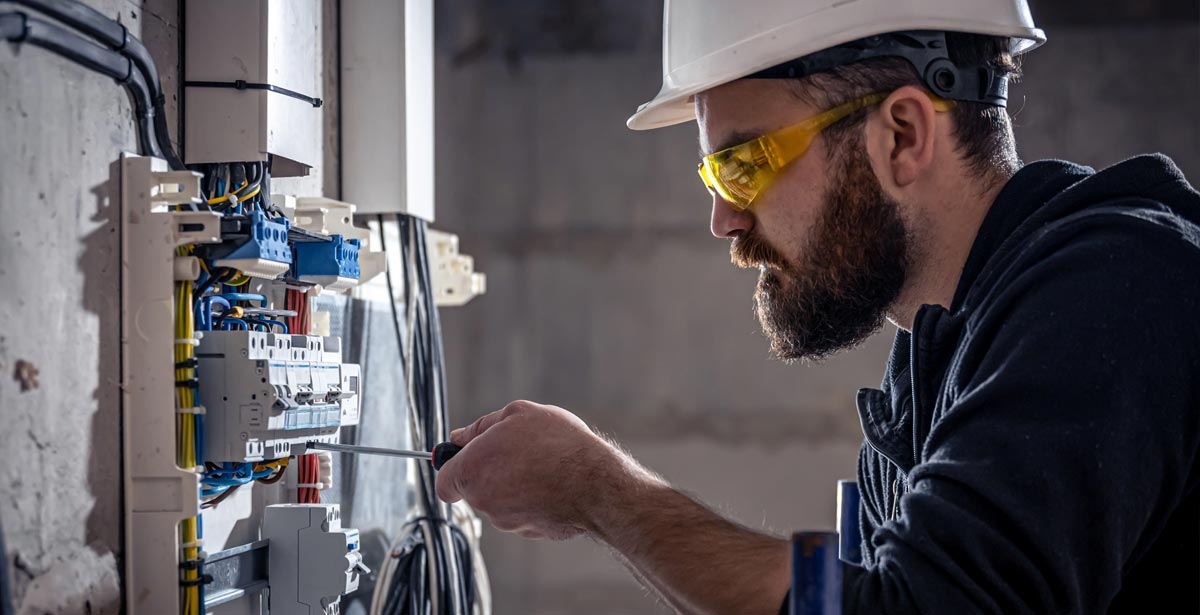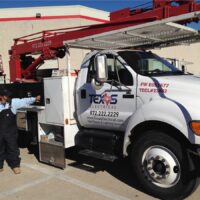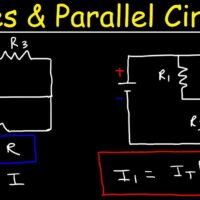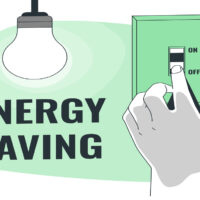Electricians install, maintain, and repair electrical systems in homes, businesses, and factories. They ensure safety and functionality by adhering to codes.
Electricians play a crucial role in modern society. They handle wiring, lighting, and electrical systems in various settings. Their expertise ensures that homes and workplaces remain safe and functional. Electricians also troubleshoot electrical issues, perform inspections, and upgrade outdated systems.
With a deep understanding of electrical codes and safety protocols, they prevent electrical hazards. Their work is essential for the seamless operation of daily activities. Whether installing new systems or maintaining existing ones, electricians provide indispensable services. Their skills and knowledge keep electrical systems running smoothly and safely.
:max_bytes(150000):strip_icc()/Electrician_526009-final-b08541ed0b754d1981c66ae0bce8dac2.png)
Credit: www.liveabout.com
Education And Training
Electricians are skilled professionals who install, maintain, and repair electrical systems. To become an electrician, individuals must undergo thorough education and training. This training ensures they understand safety protocols, electrical codes, and the practical skills needed for the job.
Apprenticeship Programs
An apprenticeship program is one of the most common paths to becoming an electrician. These programs blend on-the-job training with classroom instruction. During the apprenticeship, individuals learn from experienced electricians. They gain hands-on experience, which is crucial for mastering the trade.
Apprenticeships usually last between 4 to 5 years. They cover a wide range of topics, including:
- Electrical theory
- Blueprint reading
- Safety practices
- Electrical code requirements
- Specialized training for different types of electrical systems
Here’s a brief overview of a typical apprenticeship structure:
| Year | Focus | Hours of Training |
|---|---|---|
| 1st Year | Basic Electrical Theory, Safety | 1,000 Hours |
| 2nd Year | Residential Wiring, Blueprint Reading | 1,000 Hours |
| 3rd Year | Commercial Wiring, Code Requirements | 1,000 Hours |
| 4th Year | Advanced Systems, Specialized Training | 1,000 Hours |
| 5th Year | Final Exam, Certification Preparation | 1,000 Hours |
Upon completion, apprentices become journeyman electricians. They can then work independently or pursue further specialization.
Vocational Schools
Vocational schools offer another pathway to becoming an electrician. These schools provide structured, classroom-based learning. The programs usually take about 1 to 2 years to complete. They cover both theory and practical aspects of the trade.
Students at vocational schools learn:
- Basic electrical principles
- Wiring techniques
- Electrical codes and standards
- Use of tools and equipment
- Safety protocols
Vocational schools often have partnerships with local businesses. This allows students to gain hands-on experience through internships or cooperative education programs. Here’s a typical curriculum for a vocational school program:
| Semester | Courses |
|---|---|
| 1st Semester | Introduction to Electrical Theory, Safety Practices |
| 2nd Semester | Residential Wiring, Blueprint Reading |
| 3rd Semester | Commercial Wiring, Electrical Codes |
| 4th Semester | Advanced Electrical Systems, Practical Training |
Graduates from vocational schools often enter the workforce directly. They may start as electrician’s helpers or apprentices to gain more experience.
Job Responsibilities
Electricians play a crucial role in ensuring that our homes, offices, and public spaces have safe and reliable electrical systems. They perform a variety of tasks that ensure everything from lighting to complex wiring is installed and functioning correctly. Their job responsibilities are varied and essential for the safety and convenience of modern living.
Installation And Maintenance
Electricians are responsible for the installation and maintenance of electrical systems. This includes setting up new wiring, lighting, and control systems in buildings. They work on both residential and commercial projects, ensuring that the electrical systems are up to code and functioning correctly.
Some key tasks include:
- Reading blueprints and technical diagrams
- Installing wiring, outlets, and circuit breakers
- Maintaining and repairing electrical equipment
- Ensuring compliance with safety regulations
Electricians also perform routine maintenance to prevent issues before they occur. This involves inspecting electrical components like transformers and circuit breakers. Regular maintenance helps in extending the life of electrical systems and prevents costly repairs.
Troubleshooting And Repairs
Another critical responsibility is troubleshooting and repairing electrical issues. When electrical systems fail, electricians must diagnose the problem quickly and efficiently. This can involve a range of activities from identifying faulty wiring to replacing damaged components.
Key troubleshooting tasks include:
- Using diagnostic tools to identify issues
- Testing electrical systems and continuity of circuits
- Repairing or replacing defective wiring and equipment
- Ensuring the repaired systems meet safety standards
Electricians use a variety of tools to diagnose problems. These include multimeters, voltmeters, and thermal imaging cameras. By using these tools, they can pinpoint issues accurately and ensure that repairs are effective and long-lasting.
Whether it’s installing new systems or fixing existing ones, electricians are essential for keeping our world powered and safe.
Types Of Electricians
Electricians play a crucial role in our daily lives, ensuring that our homes, businesses, and industries run smoothly. They install, maintain, and repair electrical systems, making sure that everything is safe and efficient. There are different types of electricians, each specializing in various fields. Understanding these specializations can help you know who to call for your specific needs.
Residential Electricians
Residential electricians are the go-to professionals for home electrical needs. They handle everything from installing new wiring to fixing faulty outlets. Their work ensures that your home is safe and functional. Here are some of the tasks they perform:
- Installing new electrical systems: They set up wiring, outlets, and light fixtures in new homes or during renovations.
- Repairing electrical issues: They troubleshoot and fix problems like flickering lights or non-working outlets.
- Upgrading electrical panels: They replace old panels to handle modern electrical loads.
- Ensuring safety: They install safety devices like circuit breakers and ground fault circuit interrupters (GFCIs).
Residential electricians often work on projects that involve:
| Project | Description |
|---|---|
| New Home Wiring | Setting up electrical systems in newly built homes. |
| Home Renovations | Updating electrical systems during home remodels. |
| Emergency Repairs | Fixing unexpected electrical issues. |
Commercial Electricians
Commercial electricians work on larger projects in business settings. They ensure that electrical systems in commercial buildings are safe and efficient. Their responsibilities include:
- Installing electrical systems: They set up wiring and systems in new commercial buildings.
- Maintaining electrical systems: They perform regular checks and maintenance to prevent issues.
- Repairing electrical problems: They fix issues to keep businesses running smoothly.
- Upgrading systems: They update old electrical systems to meet modern standards.
Commercial electricians often handle tasks such as:
| Task | Description |
|---|---|
| New Building Wiring | Installing electrical systems in new commercial buildings. |
| System Maintenance | Regularly checking and maintaining electrical systems. |
| Electrical Repairs | Fixing issues that disrupt business operations. |
Industrial Electricians
Industrial electricians specialize in working with large-scale electrical systems in industrial settings. They ensure that factories and plants operate efficiently. Their duties include:
- Installing heavy machinery: They set up and connect large machines to electrical systems.
- Maintaining electrical equipment: They perform regular maintenance to keep machinery running smoothly.
- Troubleshooting issues: They diagnose and repair electrical problems in industrial settings.
- Ensuring safety: They install safety devices to protect workers and equipment.
Industrial electricians often work on:
| Task | Description |
|---|---|
| Machine Installation | Setting up and connecting industrial machines. |
| Equipment Maintenance | Regular maintenance of electrical equipment. |
| Issue Troubleshooting | Diagnosing and fixing electrical problems. |

Credit: intercoast.edu
Work Environment
Electricians play a crucial role in our daily lives, ensuring that our homes and businesses are powered safely and efficiently. Understanding their work environment helps us appreciate the diverse conditions they face. Electricians work in a variety of settings that can be challenging and require strict safety measures.
Indoor And Outdoor Settings
Electricians work in both indoor and outdoor settings. Indoors, they often work in residential homes, commercial buildings, and industrial facilities. They install wiring, troubleshoot electrical systems, and ensure proper electrical flow.
In residential settings, electricians might:
- Install lighting fixtures
- Repair faulty wiring
- Upgrade electrical panels
In commercial buildings, electricians may:
- Set up complex electrical systems
- Maintain power supply to large equipment
- Ensure compliance with local electrical codes
Outdoor work involves different challenges. Electricians might work on power lines, streetlights, or outdoor lighting systems. They often face weather-related challenges, such as rain, wind, or extreme temperatures. Outdoor tasks can include:
- Repairing power lines
- Installing outdoor lighting
- Maintaining electrical systems for public infrastructure
Here’s a quick comparison of indoor and outdoor tasks:
| Indoor Tasks | Outdoor Tasks |
|---|---|
| Installing light fixtures | Repairing power lines |
| Upgrading electrical panels | Installing streetlights |
| Troubleshooting systems | Maintaining public infrastructure |
Safety Precautions
Electricians must follow safety precautions to avoid injuries. They work with high voltage and complex systems that can be dangerous. Proper safety measures are essential.
Some key safety precautions include:
- Wearing protective gear, such as gloves and goggles
- Using insulated tools to prevent electrical shock
- Ensuring power is turned off before starting work
Electricians also need to stay updated on safety regulations. They must follow guidelines set by organizations like OSHA (Occupational Safety and Health Administration). Regular training helps them stay aware of new safety protocols.
Additional safety tips:
- Always test circuits before touching them
- Keep work areas clean and organized
- Avoid working in wet conditions
By following these precautions, electricians can minimize risks and ensure a safe working environment.
Tools And Equipment
Electricians play a crucial role in installing and maintaining electrical systems. They use a range of tools and equipment to ensure safety and efficiency. This section delves into the essential tools and equipment electricians use to perform their tasks effectively.
Basic Hand Tools
Electricians rely on basic hand tools for everyday tasks. These tools are fundamental and include items that most people recognize. Here’s a look at some of the most common basic hand tools:
- Wire Strippers: Used to strip the insulation off wires without damaging the wire itself.
- Screwdrivers: Essential for tightening and loosening screws. Electricians often use both flathead and Phillips screwdrivers.
- Pliers: Important for gripping, twisting, bending, and cutting wires.
- Utility Knife: Used for cutting cables, wires, and other materials.
- Fish Tape: Helps in pulling wires through conduits.
These tools are often carried in tool belts or bags, making them easily accessible. They are the foundation of an electrician’s toolkit and are used in almost every job they perform. Without these basic hand tools, completing electrical tasks would be challenging and time-consuming.
Power Tools
Power tools save time and effort, making tasks quicker and more efficient. Electricians use several power tools to enhance their work:
- Drill: Used for drilling holes in walls, floors, and other surfaces. Cordless drills offer portability.
- Circular Saw: Ideal for cutting through various materials like wood and metal.
- Reciprocating Saw: Useful for cutting pipes, conduit, and other tough materials.
- Rotary Tool: Versatile for grinding, sanding, and polishing.
- Impact Driver: Delivers high torque for driving screws and bolts.
These power tools are indispensable for heavy-duty tasks. They enhance productivity and precision, ensuring that electricians can perform their work efficiently and effectively.
Testing Equipment
Safety is paramount in electrical work, and testing equipment ensures systems are functioning correctly. Electricians use various testing devices, including:
- Multimeter: Measures voltage, current, and resistance. It’s essential for diagnosing electrical issues.
- Voltage Tester: Detects the presence of voltage in wires and outlets.
- Continuity Tester: Checks if a circuit is complete and unbroken.
- Clamp Meter: Measures current without disconnecting circuits. Ideal for high-current applications.
- Insulation Resistance Tester: Tests the insulation of wires and cables, ensuring they are safe and functional.
Testing equipment helps electricians verify the integrity and safety of electrical systems. This ensures that installations are safe and meet all regulatory standards.
Career Prospects
Electricians play a crucial role in keeping our homes, businesses, and industries powered. Their skills ensure electrical systems are safe and functional. Career prospects for electricians are promising, with a growing demand for their expertise. Let’s explore the job outlook and salary potential for electricians.
Job Outlook
The job outlook for electricians is very positive. According to the U.S. Bureau of Labor Statistics, employment for electricians is expected to grow 8% from 2019 to 2029. This growth is faster than the average for all occupations. Several factors contribute to this bright outlook:
- Increasing construction activities: More homes and businesses mean more electrical work.
- Advancements in technology: Smart homes and renewable energy sources need skilled electricians.
- Aging infrastructure: Older buildings require electrical upgrades and maintenance.
Electricians can work in various environments, including residential, commercial, and industrial settings. Specializations like installation, maintenance, and repair offer diverse opportunities. Here’s a breakdown of job settings:
| Setting | Description |
|---|---|
| Residential | Work in homes installing and fixing electrical systems. |
| Commercial | Handle electrical work in businesses and office buildings. |
| Industrial | Focus on factories, plants, and other large facilities. |
Salary Potential
Electricians enjoy competitive salaries. The median annual wage for electricians was $56,900 in May 2020. Here’s a closer look at the salary distribution:
- Top 10%: Earn more than $96,580 annually.
- Bottom 10%: Make less than $33,810 each year.
Salaries vary based on experience, location, and specialization. Experience plays a significant role in earnings. Here’s a general breakdown by experience level:
| Experience Level | Average Salary |
|---|---|
| Entry-Level | $40,000 – $50,000 |
| Mid-Career | $50,000 – $70,000 |
| Experienced | $70,000 – $90,000 |
Location also affects salary. Electricians in states like California and New York often earn more than those in other states. Specializations can lead to higher pay. Master electricians and those with advanced certifications typically earn more. Pursuing further education and certifications can boost earnings significantly.

Credit: porterchester.edu
Frequently Asked Questions
What Does The Electrician Do?
An electrician installs, maintains, and repairs electrical systems in homes, businesses, and factories. They ensure safety and functionality. Electricians read blueprints, test electrical components, and follow local codes. They also troubleshoot electrical issues and upgrade outdated systems.
What Are The Duties Of An Electrical Electrician?
An electrician installs, maintains, and repairs electrical systems. They read blueprints, troubleshoot issues, and ensure safety standards. Electricians also upgrade outdated systems and inspect electrical components for efficiency.
What Is The Most Common Job For An Electrician?
The most common job for an electrician is installing and maintaining electrical systems in homes, businesses, and factories. They ensure wiring is safe and functional. Electricians also troubleshoot and repair electrical issues.
Which Skills Are Required To Work As An Electrician?
Electricians need technical skills, manual dexterity, and problem-solving abilities. Knowledge of safety protocols and electrical codes is essential. Strong communication skills and physical stamina are also important.
Conclusion
Electricians play a crucial role in our daily lives. They ensure homes and businesses are safely powered. From installations to repairs, their skills are essential. Understanding their duties helps us appreciate their importance. Always trust a qualified electrician for electrical work.
Your safety depends on their expertise and knowledge.




